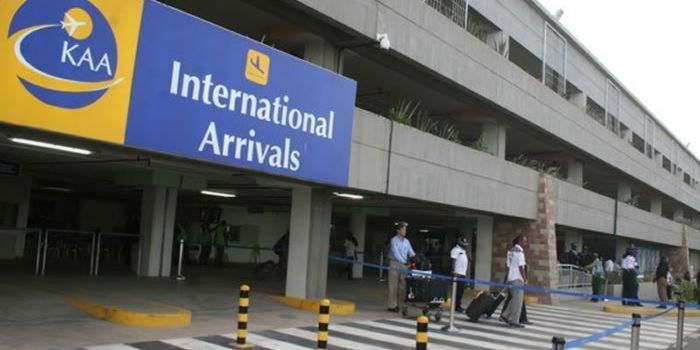ENS - News - Fraud risks, prevention and detection strategies for the African beer brewing industry
PRINT | SUBSCRIBE | UNSUBSCRIBE | TEXT ONLY
ight
14 Jul 2025
BY Tyler Lillienfeldt AND Tendai Jangara
Several major companies dominate the beer brewing industry across Africa, with operations spanning multiple regions and consolidating significant market shares. One of the most prominent examples is AB InBev, who acquired SABMiller in 2016, thereby inheriting long-established brands such as Castle Lager and Carling Black Label. Through this acquisition, AB InBev rapidly expanded its footprint in South Africa and the rest of the continent, leveraging SABMiller's well-developed distribution channels and brand recognition. Heineken also maintains a robust presence across Africa, operating breweries in countries such as Nigeria, Rwanda, Kenya, and Uganda, and partnering with regional beer makers to craft products tailored to local tastes. Another key player is Diageo, a global beverages company that holds a majority stake in East African Breweries Ltd (""), which is particularly well-known for the Tusker brand in Kenya and surrounding countries. Namibia Breweries, based primarily in Namibia but active in various neighbouring markets, further enhances the competitive landscape by producing globally recognised labels such as Windhoek Lager.
Brewing operations have multiple stakeholders and extensive supply chains involving raw materials, packaging, transport, and distribution. If not closely monitored, opportunities for fraud may arise, which can adversely impact commercial outcomes, brand reputation, and consumer safety.
Employee actions such as misappropriation of funds and inventory, falsification of records, and collusion with vendors can perpetuate fraud in companies. Perpetrators will often use expert methods to prevent detection, resulting in financial loss for companies over long periods of time.
Inflated invoices, fake vendors, and substitution of legitimate products for cheaper alternatives can be used for unjustified financial benefit for employees and external parties. Consequences include reduced profitability and financial loss for the business, together with a reputation for unethical employees.
The extensive distribution channels required to reach diverse markets across Africa create opportunities for fraud during transportation and warehousing. Risks include diversion of stock, manipulation of delivery records, and unauthorised sales of products outside official channels. Employees, distributors, or third-party logistics providers can perpetrate these activities, leading to inventory shrinkage and loss of market control.
Given the scale of contracts for raw materials, packaging, and distribution, there is a risk of collusion between internal staff and external vendors. This can manifest as kickbacks, preferential treatment, or manipulation of tender processes, ultimately leading to inflated costs and reduced competitiveness.
Breweries often allocate significant budgets to marketing, sponsorships, and promotional activities. There is a risk that these funds may be misappropriated through fictitious events, inflated invoices, or unauthorised payments to third parties, resulting in financial loss and potential regulatory scrutiny.
Regulatory compliance pressures can lead to the bribing of local authorities and inspectors, resulting in adverse financial and reputational outcomes for companies whose employees engage in this behaviour. The legal implications include breaches of national anti-bribery and anti-corruption laws, as well as international obligations according to instruments such as the United Nations Convention Against Corruption ("UNCAC") and the African Union Convention on Preventing and Combating Corruption ("AUCPCC").
7. Brand Fraud and Counterfeiting
Brand fraud can occur when counterfeit products are packaged in a manner that makes it difficult or impossible for consumers to tell that an imitation of a legitimate product is being sold. Actions include refilling branded bottles and copying brand designs, then selling the unregulated and potentially hazardous products at lower prices. Counterfeit alcohol makes up approximately 18% of the South African market, estimated to be worth ZAR25 billion. Implications include brand confusion and loss of revenue by companies based on sales of cheaper, counterfeit products to the established customer base.
Prevention and detection strategies:
By adopting these protocols and adapting them to local requirements, brewing companies in Africa can remain competitive while actively preserving financial, operational, and reputational integrity.
Tendai Jangara
Executive | Forensics
Tyler Lillienfeldt
Trainee | Forensics
You may also like...
Diddy's Legal Troubles & Racketeering Trial

Music mogul Sean 'Diddy' Combs was acquitted of sex trafficking and racketeering charges but convicted on transportation...
Thomas Partey Faces Rape & Sexual Assault Charges

Former Arsenal midfielder Thomas Partey has been formally charged with multiple counts of rape and sexual assault by UK ...
Nigeria Universities Changes Admission Policies

JAMB has clarified its admission policies, rectifying a student's status, reiterating the necessity of its Central Admis...
Ghana's Economic Reforms & Gold Sector Initiatives

Ghana is undertaking a comprehensive economic overhaul with President John Dramani Mahama's 24-Hour Economy and Accelera...
WAFCON 2024 African Women's Football Tournament

The 2024 Women's Africa Cup of Nations opened with thrilling matches, seeing Nigeria's Super Falcons secure a dominant 3...
Emergence & Dynamics of Nigeria's ADC Coalition

A new opposition coalition, led by the African Democratic Congress (ADC), is emerging to challenge President Bola Ahmed ...
Demise of Olubadan of Ibadanland
Oba Owolabi Olakulehin, the 43rd Olubadan of Ibadanland, has died at 90, concluding a life of distinguished service in t...
Death of Nigerian Goalkeeping Legend Peter Rufai

Nigerian football mourns the death of legendary Super Eagles goalkeeper Peter Rufai, who passed away at 61. Known as 'Do...



